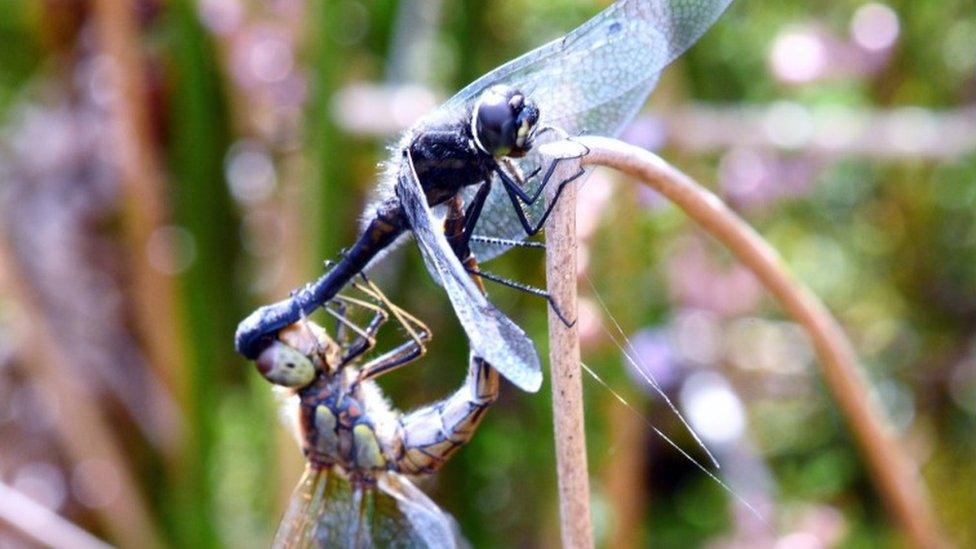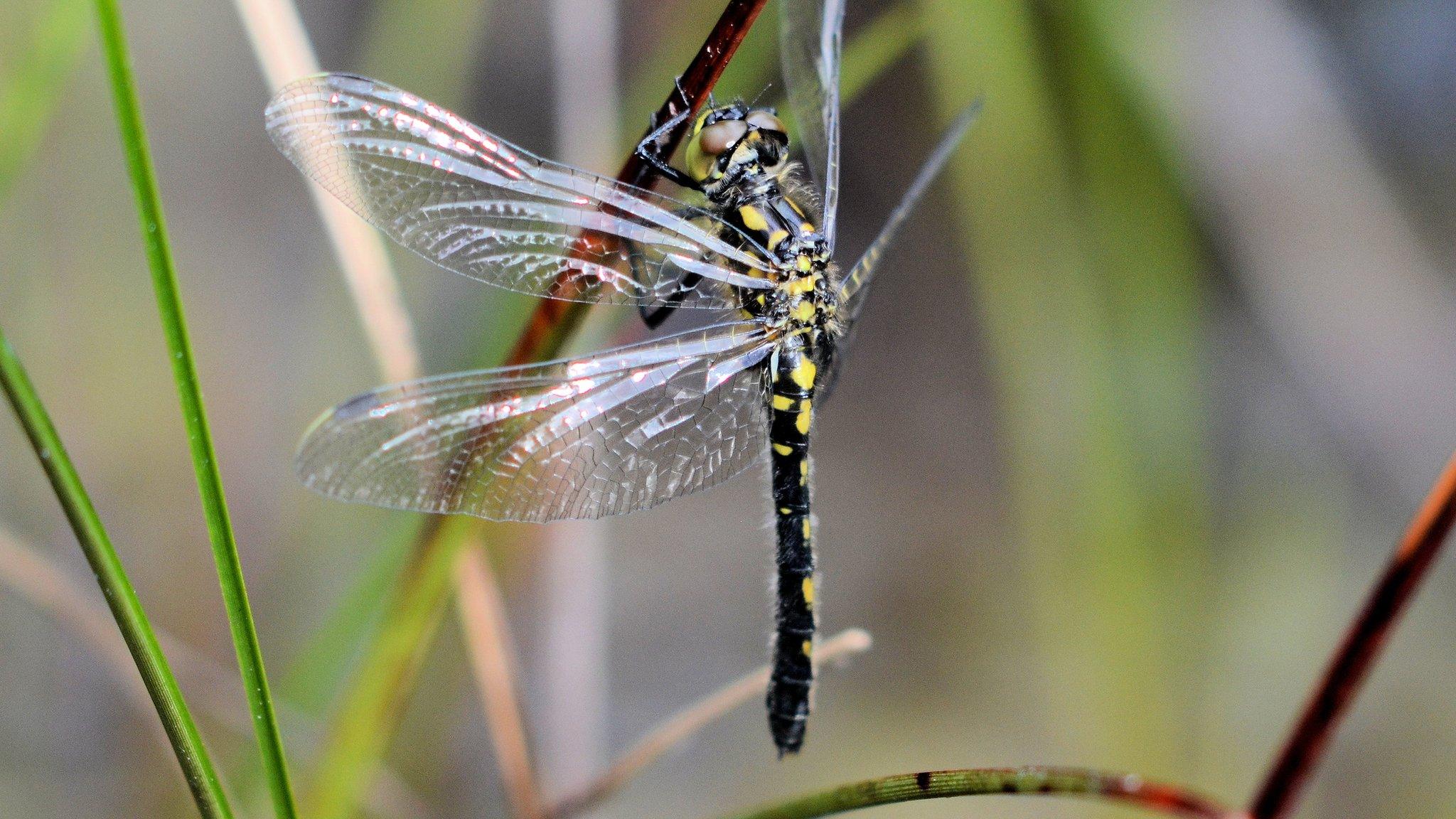Dragonflies and damselflies bounce back after extreme weather
- Published

The "Beast from the East" decimated insect populations
The North East's dragonfly and damselfly population has bounced back after being hit by extreme weather.
A survey by the Durham Wildlife Trust showed the insects thrived in 2019 - 1,296 were counted, which was 324 more than the previous year.
A spokesman for the trust said the extreme cold of early 2018, dubbed the "Beast from the East", badly hit populations.
He said insect counts were vital to monitor the health of wetlands.
'Awash with insects'
The most frequently spotted in 2019 were the common darter dragonfly and the blue-tailed damselfly.
The insect counts were carried out at Rainton Meadows, Low Barns, Malton near Lanchester and Barlow Burn in Gateshead.
A spokesman for the trust said: "During the whole of March 2018, the Best from the East brought with it significant snowfall and icy conditions, which had an adverse impact on some dragonfly and damselfly species.
"Then June 2018 was the hottest on record since 1915 and the hot weather resulted in many wetland and pond areas drying up completely, which destroyed both eggs and larvae.
"The weather in 2019 was very different and the region was awash with dragonflies and damselflies."
Wetlands help protect shores from wave action, reduce the impact of floods and improve water quality, the trust said.
Volunteers are needed for the 2020 count, which begins in April.
- Published14 July 2015
